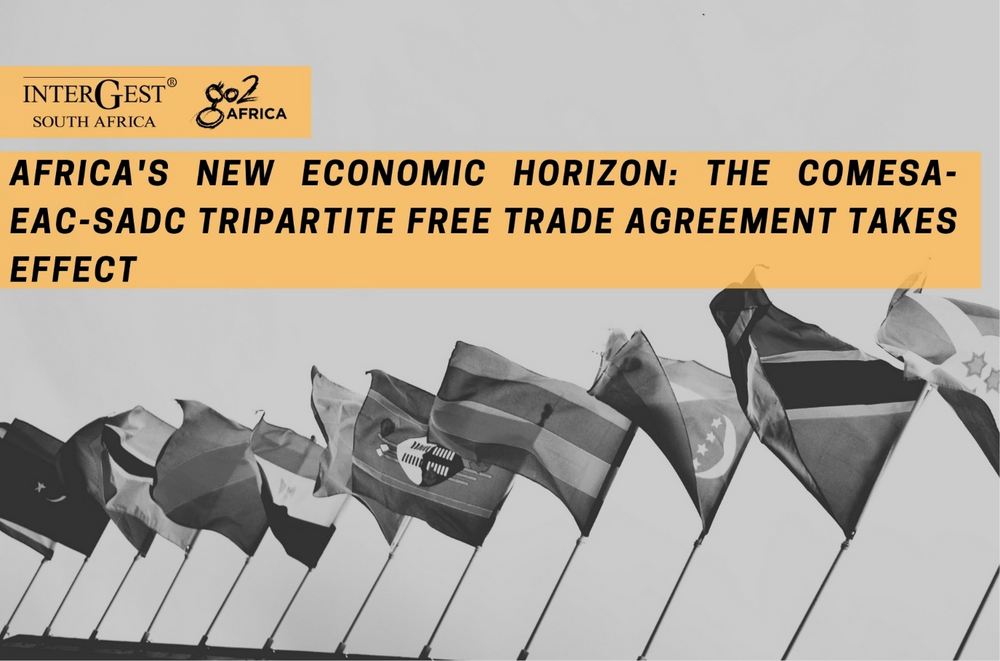
On July 25th, 2024, Africa witnessed a historic milestone as the Common Market for Eastern and Southern Africa (COMESA), East African Community (EAC), Southern African Development Community (SADC) Tripartite Free Trade Area (TFTA) Agreement officially came into force. This landmark agreement, which has been in the making for over a decade, is set to revolutionise trade and investment across the continent, uniting 29 African countries under a single economic umbrella.
A Decade in the Making
The journey towards the TFTA began in October 2008 when the Heads of State and Government from the COMESA, EAC, SADC convened to establish a free trade area encompassing these three regional blocks. The vision was to create an integrated market that would enhance market access, streamline multiple memberships, and promote cooperation and coordination among member states.
The agreement required ratification by at least 14 out of the 29 member states to come into effect. This threshold was met on June 25th, 2024, when Angola became the 14th country to deposit its instrument of ratification. This critical step was announced during the 37th Tripartite Task Force Meeting held on July 20th, 2024, on the sidelines of the 6th African Union Mid-Year Coordination Meeting in Accra, Ghana.
The TFTA: A Continental Game-Changer
The Tripartite Free Trade Agreement is more than just a trade agreement; it represents a bold move towards the economic integration of Africa. With the agreement now in force, 29 countries, representing 53% of the African Union’s membership, 60% of the continent’s GDP (amounting to $1.88 trillion), and a combined population of 800 million, are poised to benefit from this unified market.
The TFTA is built on three key pillars:
Market Integration: This involves trade liberalization through the creation of a Free Trade Area, facilitating the smooth movement of goods, services, and businesspersons across borders.
Infrastructure Development: Aimed at enhancing connectivity and reducing business costs, this pillar focuses on developing the infrastructure needed to support a seamless trade environment.
Industrial Development: This pillar seeks to create a supportive environment by improving regulatory and legal frameworks, adding value to products, diversifying industries, increasing productivity and competitiveness, and implementing programs for structural change.
Boosting Foreign Investments: Opportunities for Global Players
The implementation of the TFTA presents unparalleled opportunities for foreign investors, particularly those seeking to enter or expand within the African market. With the harmonisation of trade policies, the removal of tariffs, and the elimination of non-tariff barriers, the TFTA makes Africa a more attractive and accessible destination for global businesses.
InterGest South Africa, a company dedicated to facilitating business operations for foreign investors in Africa, is poised to play a pivotal role in helping global players navigate this new landscape. By leveraging the opportunities presented by the TFTA, InterGest South Africa can assist companies in capitalizing on the expanded market access, reduced trade costs, and streamlined regulatory environments that the agreement offers.
For international investors, the TFTA means easier access to a vast and diverse market that stretches from Cape to Cairo. The removal of trade barriers not only enhances the flow of goods and services but also creates a more competitive environment, enabling businesses to penetrate new markets and increase their earnings. This is particularly significant for sectors like manufacturing, infrastructure, and services, where the demand is expected to surge as member states implement the agreement.
Economic Opportunities and Growth
The implementation of the TFTA is expected to yield significant economic benefits for member states. By combining trade policies, removing tariffs, and eliminating non-tariff barriers, the TFTA will promote equal competition, enable countries to penetrate new markets, and contribute to national development. The agreement is also anticipated to create jobs, boost economic opportunities, and drive growth across the region.
Elias Mpedi Magosi, Executive Secretary of SADC and Chairperson of the Tripartite Task Force, highlighted that the countries that have ratified the agreement accounted for 75% of the Tripartite GDP in 2022. He emphasized the need for continued engagement with member states that have yet to ratify the agreement to ensure full participation in this transformative initiative.
Veronica Nduva, Secretary General of the EAC, stressed the importance of consolidating the Tripartite FTA through effective implementation to harness its potential benefits. She noted that the EAC is actively engaging its partner states that are in the process of ratifying the agreement, such as Tanzania and South Sudan.
Looking Ahead
As the TFTA officially enters into force, the focus now shifts to its implementation. The agreement’s success will depend on the establishment of necessary structures, continued cooperation among member states, and the strategic development of policies that align with the TFTA’s objectives.
For businesses and investors working with InterGest South Africa, the TFTA represents a new scope of opportunities. Our company is well-positioned to guide foreign investors through the complexities of this vast market, ensuring that they can fully capitalize on the benefits of Africa’s largest free trade area.
The TFTA marks a pivotal step forward in Africa’s economic journey, promising a brighter future for millions of people across the continent. It serves as a beacon of opportunity for businesses and investors, providing unprecedented access to a vast and dynamic market. With the groundwork laid and the necessary ratifications in place, the TFTA is set to be a game-changer in Africa’s economic landscape, paving the way for increased trade and investment, across the region. As Africa continues to embrace this promising advancement, the continent stands on the cusp of a new era of economic integration and growth.
SOURCES:
COMESA-EAC-SADC Tripartite Trade Area to come into force 25th July, 2024
History made as Africa’s Tripartite FTA comes into force
https://www.tralac.org/images/docs/8745/ifeoluwa-ogunbufunmi-winning-essay-summary-december-2015.pdf





